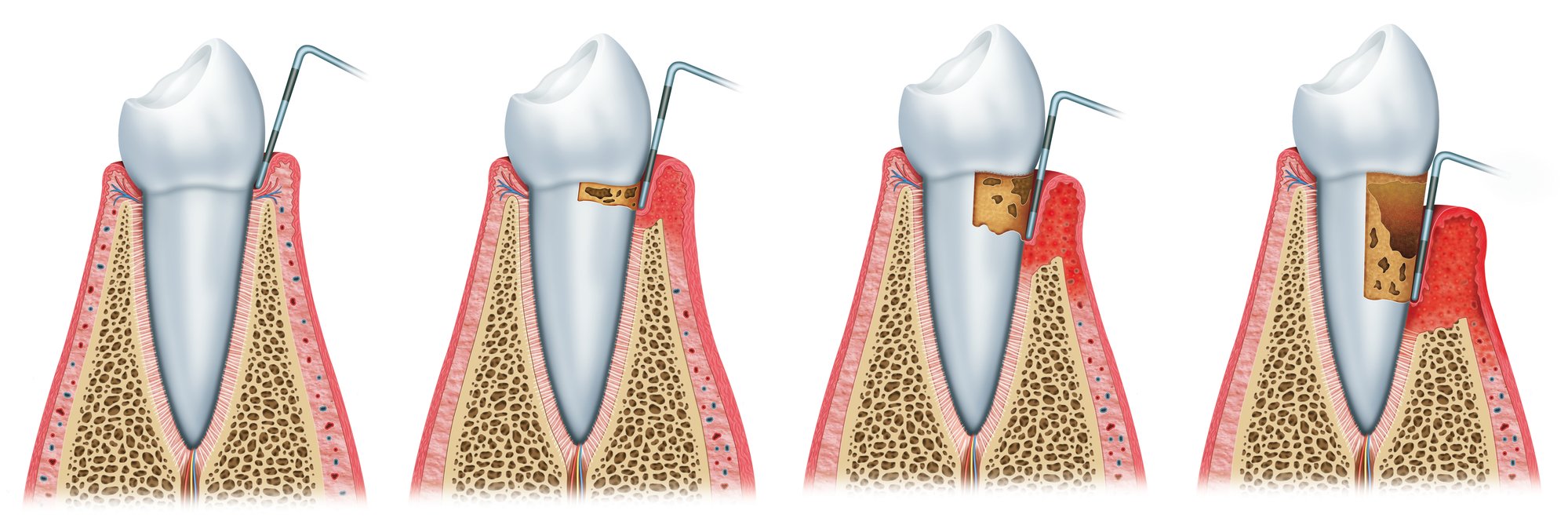
Periodontal disease (aka gum disease) affects millions of Australian adults. Yet, many don’t know anything about it until they are diagnosed with it. Many of those people aren’t diagnosed until the disease has developed into a very serious health problem which often leads to tooth loss.
Education is the first step towards prevention. That’s why we’re writing this blog! Here, you’ll find the basic and most important facts about gum disease.
The Stages of Gum Disease
Gum disease happens when the bacteria in the mouth become unbalanced. In a healthy mouth, billions of bacteria that work together to create a neutral environment. Poor oral hygiene, eating too much sugar, genetics, and certain medications can all lead to the production of bad bacteria that take over the mouth. Once this occurs, the disease progresses through these four stages:
Gingivitis
Gingivitis is the most common form of gum disease and most easily treated. In some cases, an enhanced oral hygiene routine can reverse gingivitis, but a professional dental clean is the best treatment.
How do you know if you have gingivitis? The most common symptoms are red gums, irritated gums, and bleeding while brushing and flossing.
Early Periodontitis
When gingivitis turns into early periodontitis, the person may experience persistent bad breath and mild gum recession in addition to their other symptoms. At this stage, the disease may not be reversible.
Early periodontitis treatment usually includes scaling and root planing. This treatment involves using special dental tools to remove tartar from above and below the gum line.
Moderate Periodontitis
As the bacteria moves further and further below the gum line, it attacks the bones and infiltrates the bloodstream and immune system. The gums will continue to recede, and the other symptoms will continue to worsen.
Scaling and root planing might be the dentist’s first line of treatment for moderate periodontitis. Then, he or she might recommend gum surgery to replace the missing tissue.
Advanced Periodontitis
In the last stage of gum disease, the symptoms should be very apparent. Patients report having loose teeth because of the extend of gum disease. The teeth may seem more spaced out than usual as well. At this point, the disease and its symptoms must be addressed. This could include root scaling and planing, gum grafting, and other restorative procedures.
The Connection to Overall Health
Because periodontitis is an inflammatory disease, and can get into the bloodstream, it impacts many areas of the body. Periodontal disease is associated with heart disease, diabetes, and osteoporosis.
For women, gum disease can be a symptom of hormonal issues like puberty, menstruation, and menopause.
Preventing Periodontal Disease
Our goal as dental professionals is to help everyone avoid gum disease. First, we educate. Then, we provide practical tips for patients to apply.
Here are our top five tips for preventing periodontal disease:
- Brush every morning and evening with a fluoridated toothpaste
- Floss every evening
- Consume a healthy diet (limiting sugary beverages and candy)
- Quit tobacco use
- Visit the dentist regularly
Those who follow these guidelines are much less likely to develop gum disease at any age!
Start Preventing Periodontal Disease Today
At Magic Smiles, we desire to see all patients achieve optimal oral health. Our team of friendly, experienced dentists is proud to serve the Woolgoolga and Coffs Harbour communities. Contact us today at (02) 6654-0650 to schedule a dental cleans and exam appointment.

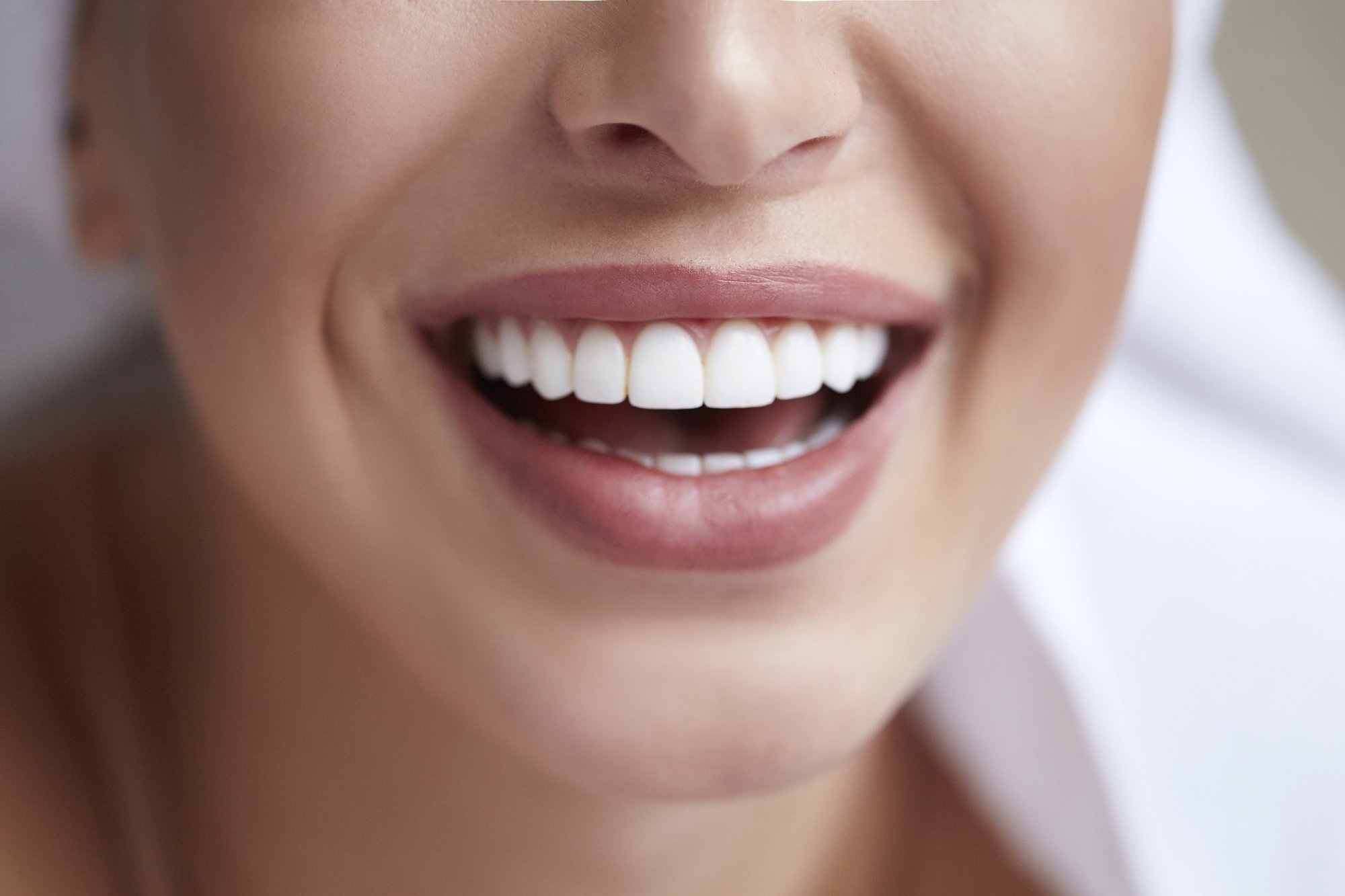
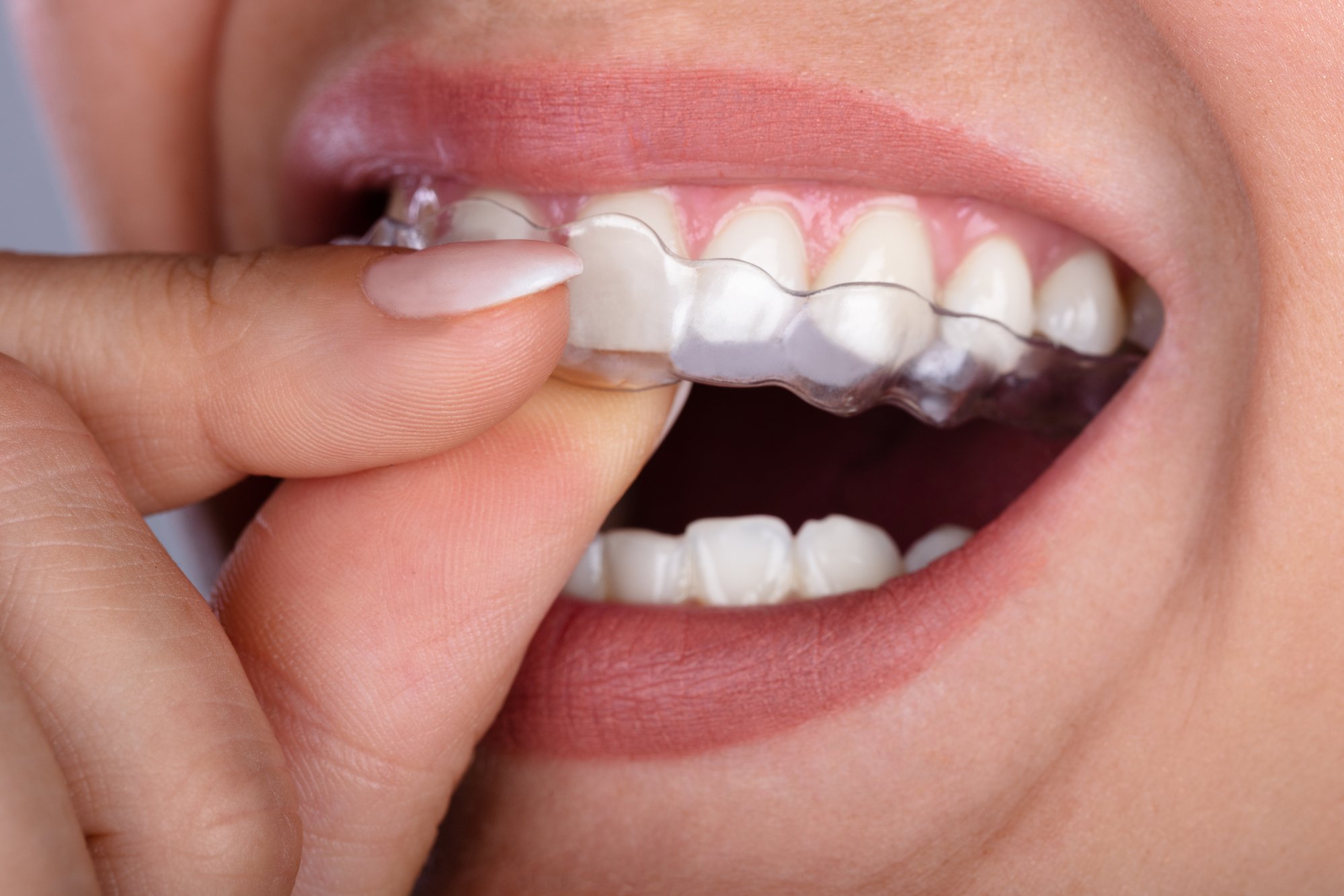
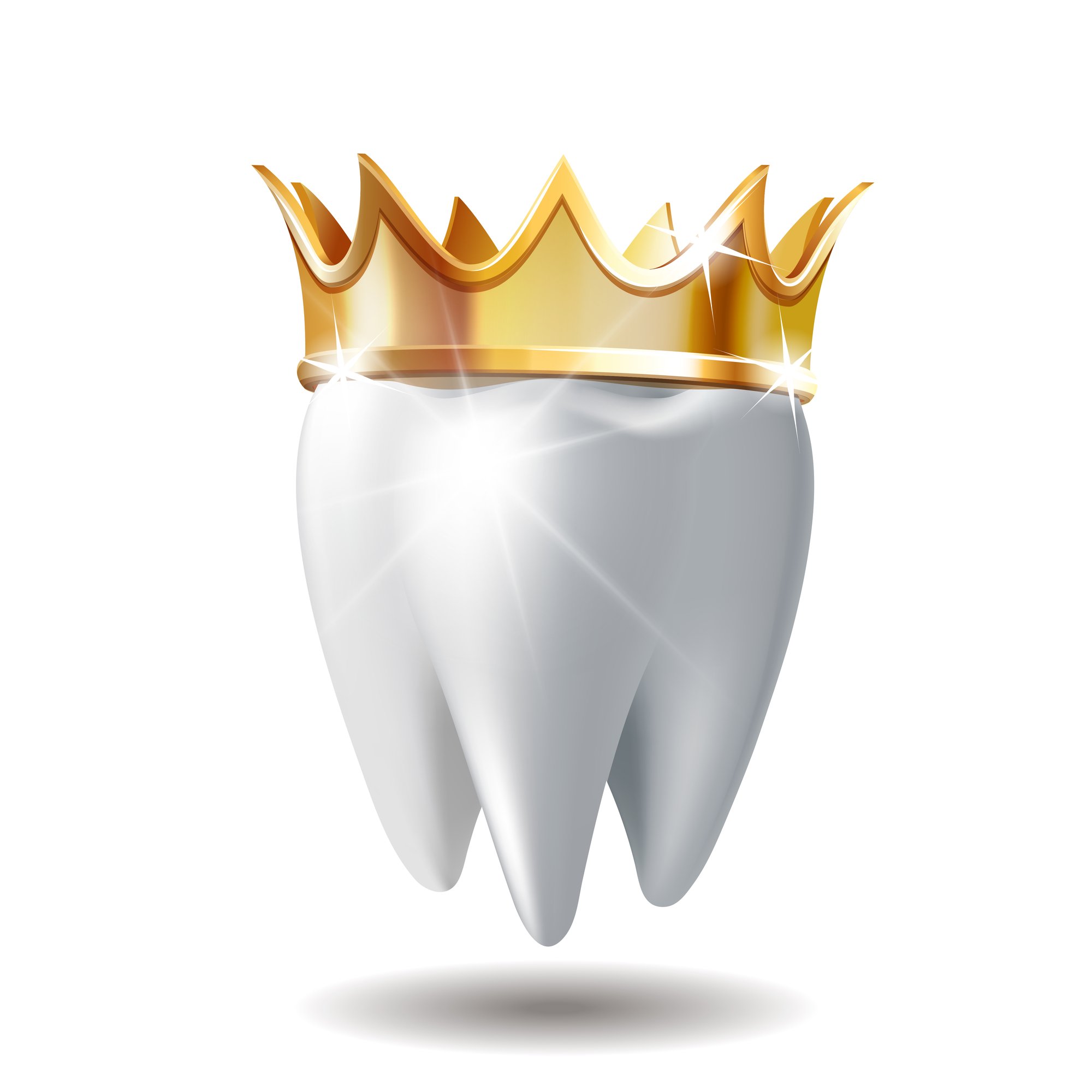
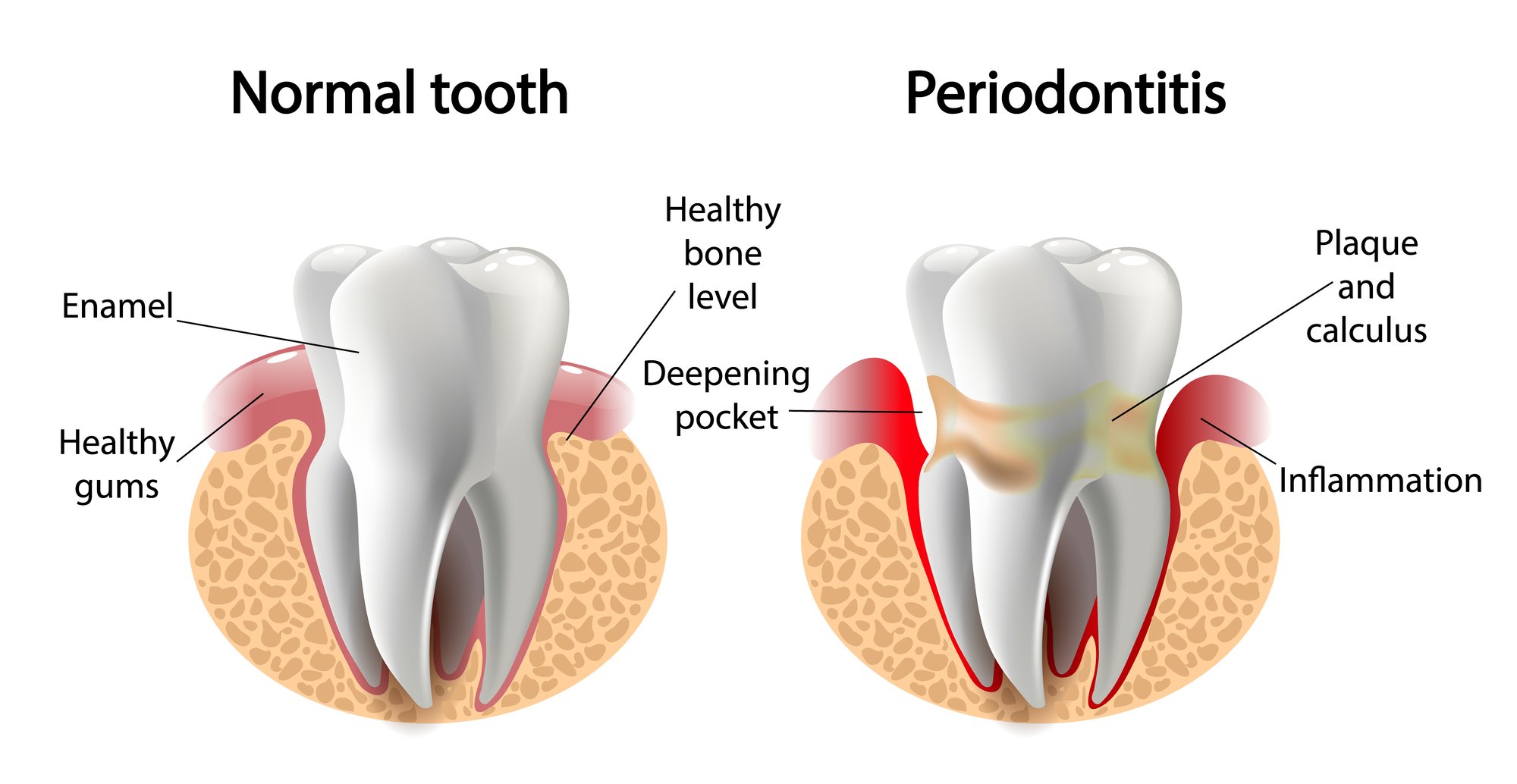



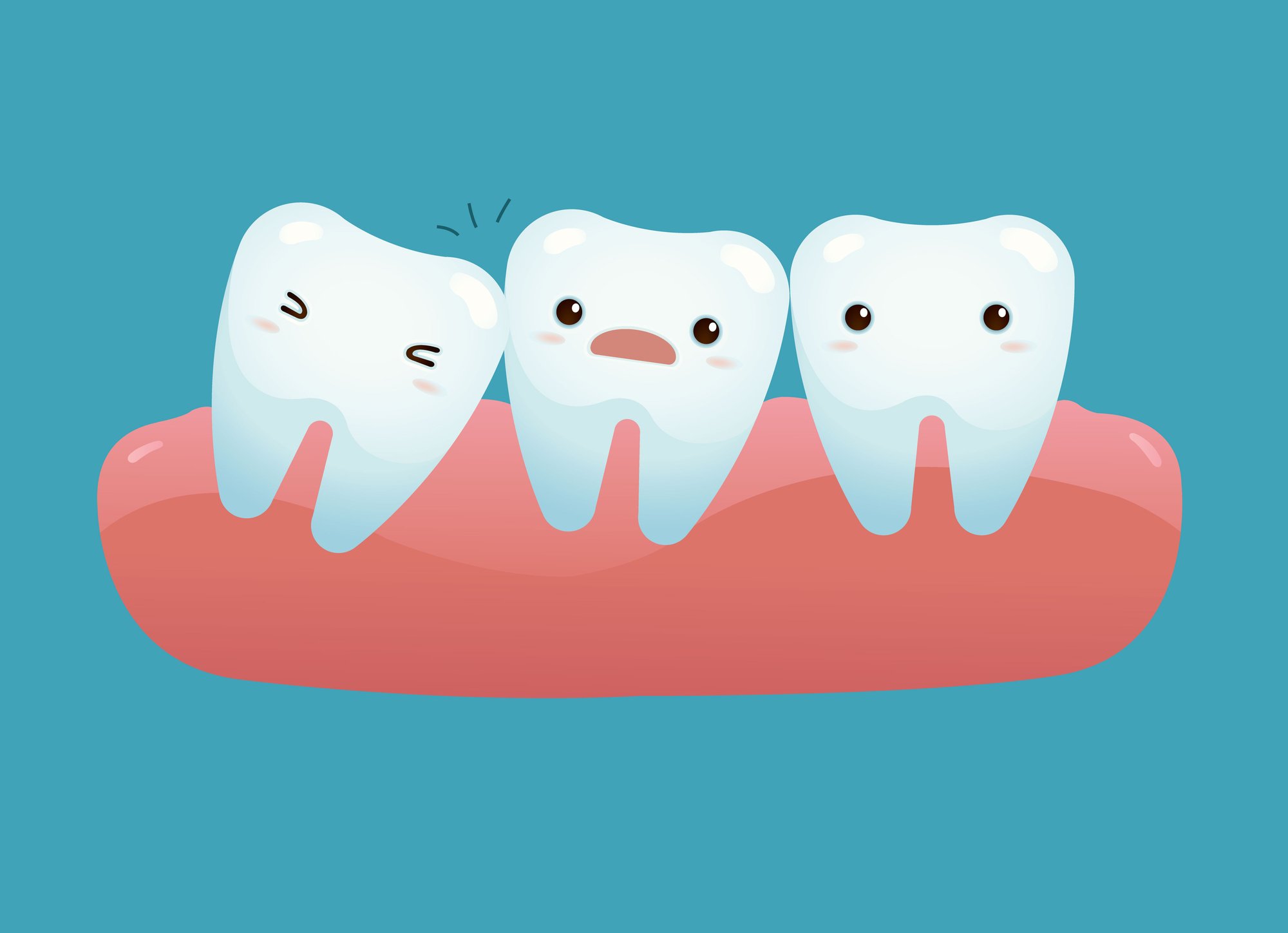
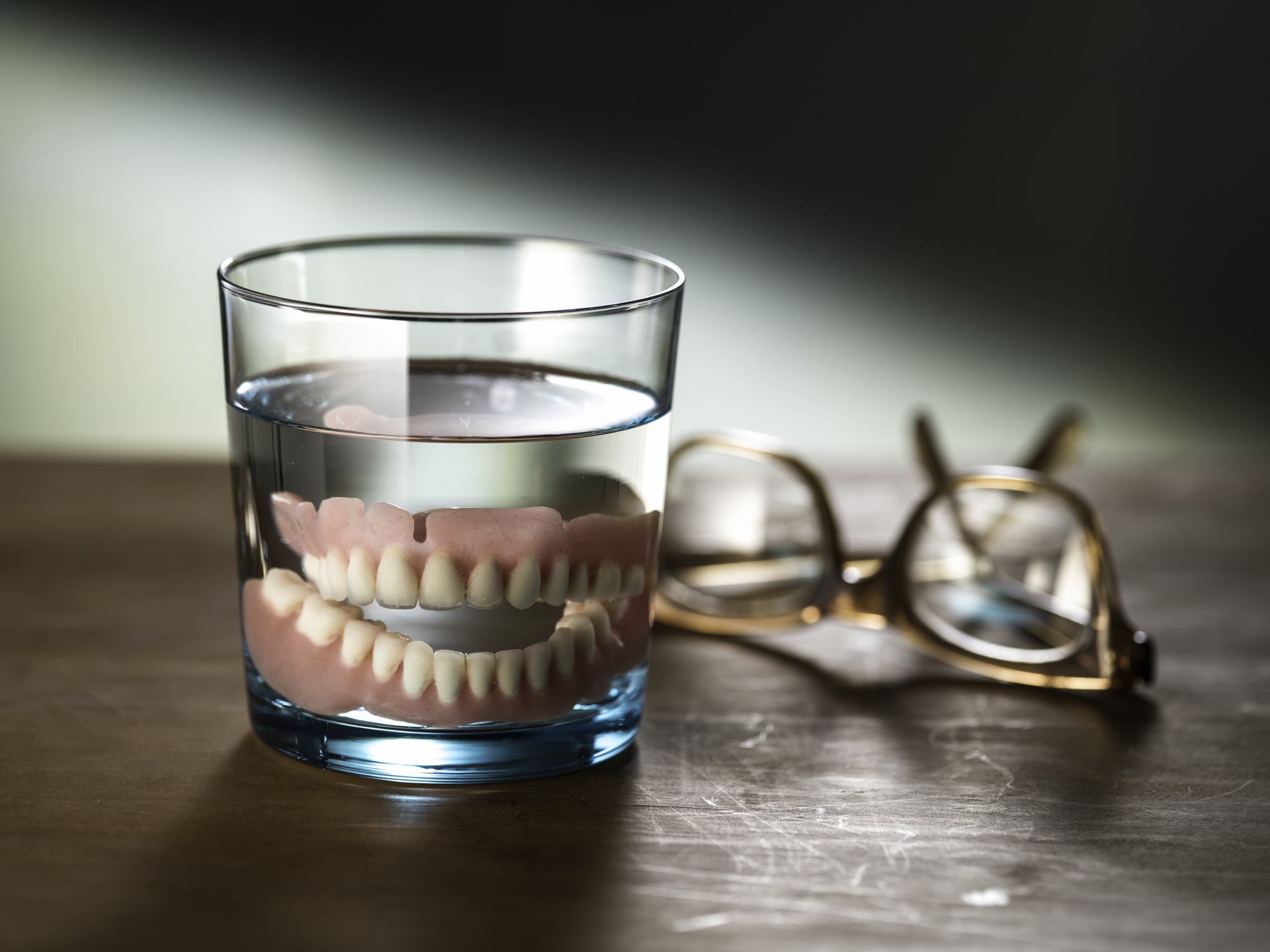


Recent Comments